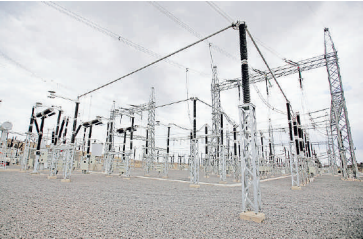

The abrupt cancellation of the Sh637
billion Adani deals leaves Kenya in
a precarious position regarding the
future of its international contracts,
with contract management experts
worried that it might send a hostile
signal.
On November 27, President William Ruto ordered the immediate stoppage of talks between his government with the Indian stable about investments in the Jomo Kenyatta International Airport and the Kenya Electricity Transmission Company (Ketraco) after the US government linked some of the firm’s top executives to an alleged graft.
While Kenya took a panic retreat on Adani, her neighbour Tanzania stood firm, with President Samia Suluhu’s government saying it will honour its contracts with the Indian giant.
In May, Tanzania entered into a 30-year concession agreement with Adani Ports, a unit of Adani Group, to operate a container terminal in its Dar es Salaam port, known as Container Terminal 2.
Adani Ports also struck a share purchase agreement for a 95 per cent stake in state-owned Tanzania International Container Terminal Services for $95 million (Sh12.3 billion).
“We don’t have any problems with anyone. Everything we are doing is according to our laws and agreements,” Tanzania Ports Authority director general Plasduce Mbossa told Reuters Tuesday last week.
The Star talked to various experts on the implication of the government’s decision on the future of international investments of such significance in the country.
While majority are of the opinion that it will cast the country’s investment climate in a bad light, a few believes that it was in the public interest.
Simon Lugano, a public private partnership expert thinks that the country acted so soon and should have taken time to conduct independent investigations on the US’s bribery allegations against Adani Group’s founder Gautam Adani, nephew Sagar Adani, and senior executive Vneet Jaain.
“Respect of contractual agreement is vital in business. It sets the mood of reliability and sends a wave of honesty and fairness to prospecting investors. While it was necessary for President Ruto to make that declaration in the face of hostility both home and internationally, a billion-dollar investors will be a little more cautious doing business in Kenya,’’ Lugano said.
He added that the cancellation came just after Ruto’s government was almost quelling heated political climate that sparked Gen Z revolt mid this year, seemingly high tax regime and shaky economy rising from ruins of high inflation and forex volatilities.
“It adds a little scare to investors.” He insists that the government must quickly diffuse the tense moment by assuring investors of their safety.
“Clear and intended messaging and action must follow to rebuild trust.” His sentiments are echoed by Otieno Panya, a contract manage ment expert and writer focused on global business trends and policies who insists that countries and companies looking to establish or expand trade relationships with Kenya will need assurances that their contracts and investments will be protected.
In his well circulated opinion on LinkedIn, Panya is worried that the cancellation could result in fewer companies willing to invest in largescale projects, particularly in sectors like infrastructure, energy, and aviation, where the capital outlay is significant and the payback period is often long.
“Public-private partnerships (PPPs) and foreign investments are necessary to drive Kenya’s development agenda. The government must, therefore, strike a balance between ensuring that foreign deals align with national interests and maintaining a stable, predictable environment for investment.’’
A legal expert who requested to remain anonymous due to the magnitude of the story expressed concern over the potential consequences of terminating the already signed contracts, saying that such decision might carry a heavy legal demand on the government.
“Choices have consequences. Although both the government and Adani Group have indicated not entering any deal in regards to JKIA, it was widely reported that a deal was reached with Ketraco on modernisation of the country’s power line. An abrupt cancellation carries a significant legal burden,” he said.
His argument mirrors that of Narok Senator, Ledama Olekina who hailed President Ruto for cancelling plans on JKIA, saying that it is important for the government to carry out public participation and have full disclosure on PPPs.
“I am happy that the JKIA deal had not been signed, but I’m concerned about the Ketraco deal if there is any agreement that had been reached,” he said.
Even so, procurement expert Irene Kabaara says that most of the projects, if not key projects, good policies and regulations fail due to lack of structured or strategic or sufficient stakeholders’ engagement.
“This is not an egg and chicken scenario. A key step in public procurement was missed at the beginning. If stakeholder engagement is not right, it soils the whole procurement process. Public participation is a legal step in Kenya’s public procurement. Ruto reacted to this demand,” she said.
Law Society of Kenya president Faith Odhiambo expressed support for the President’s directive but emphasized the importance of accountability.













